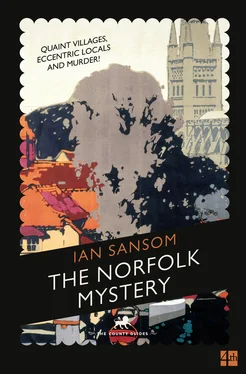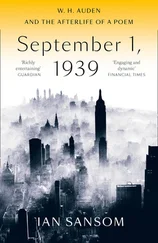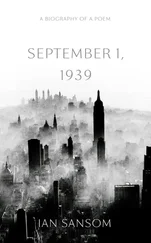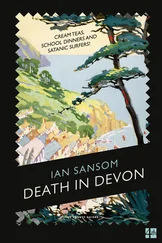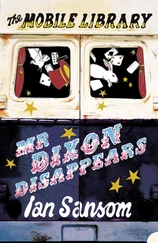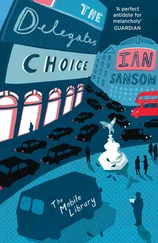Near Tunbridge Wells one day, in Kent, I retreated to the safety of a public library to read The Times – something to distract me from my inner thoughts. Which was where I saw the advertisement, among ‘Appointments & Situations Vacant’:
Assistant (Male) to Writer. Interesting work; good salary and expenses; no formal qualifications necessary; applicants must be prepared to travel; intelligence essential. Write, giving full particulars, BOX E1862, The Times, E.C.4.
I had, at that moment, exactly two pounds ten shillings to my name – enough for a few weeks’ food and rent, maybe a month, a little more, and then …
I believed I had already engineered my own doom. There was no landfall, only endless horizon. I foresaw no future.
I applied for the job.

THE INTERVIEW for the post took place in a private room at the Reform Club. If I were writing a novel I should probably at this point reveal to the reader the name of my prospective employer, and the reasons for his seeking an assistant. But since I intend to make this as true an account as I can make it of what occurred during our time together, I shall content myself with gradually revealing the facts as they revealed themselves to me. I had, I should stress, absolutely no knowledge during the course of my interview of the nature of the employment to follow. If I had, I would doubtless have scorned it and thus played no part in the strange episodes and adventures that were once world-renowned but which are now in danger of being forgotten.
I arrived at the Reform Club in good time and was shown to the room where the interview was to be conducted. The last time I’d attended an interview was at the party offices on King Street, when I’d had to convince them I wanted to join the British Battalion and go to Spain. That experience had been merely chastening. This was much worse.
Several young men were already seated outside the room, like passengers at a railway station, or patients awaiting their turn – all of them solid, dense sort of chaps, one of them in an ill-fitting pinstripe suit consulting notes; another, his hair over-slick with brilliantine, staring unblinkingly before him, as though trying to overcome the threat of terrible pain. In my tin spectacles and blue serge suit I appeared a degenerate in comparison, like a beggar, or a music-hall turn. One by one we were called into the interview room. Waiting, I found myself quietly dozing, as had become my habit due to my sleeplessness at night, and dreaming uncomfortably of Spain, of sandy roads lined with trucks carrying displaced persons, of the bodies and the blazing sun.
I was jerked awake, shaken by the man in the pinstriped suit.
‘Good luck,’ he said as he hurried away, still clutching his notes. He looked shell-shocked.
I was the last to be interviewed. I knocked and entered.
The room was a panelled study reminiscent of my supervisor’s rooms at college, a place where I had known only deep lassitude, and the smell of pipe tobacco. Heavy damask curtains were drawn across the windows, even though it was not yet midday, and gas lamps burned, illuminating the room, which seemed to have been established as some kind of operational headquarters, a sort of den, or a dark factory of writing. There were reams of notepaper and envelopes of various types stacked in neat piles on occasional tables by the main desk, and stacks of visiting cards, a row of shining, nickel-sheathed pencils laid out neatly, and a selection of pens, and a staple press, and paper piercers, a stamp and envelope damper, an ink stand, loose-leaf manuscript books, table book-rests crammed with books, and various scribbling and memo tablets. The whole place gave off a whiff of ink, beeswax, hard work, tweed and … carbolic soap.
A man was seated at the main desk, typing at a vast, solid Underwood, several lamps lit around him like beacons, with dictionaries and encyclopedias stacked high, as a child might build a fortress from wooden blocks. He glanced up at me briefly over the typewriter and the books, long enough to recognise my presence and to register, I thought, his disapproval, and then his eyes returned to his work. He was, I guessed, in his late fifties, with white, neatly trimmed hair, and a luxuriant moustache in the Empire manner. He wore a light grey suit and a polka-dot bow tie, which gave him the appearance rather of a medical doctor or, I thought – the tapping of the keys of the typewriter perhaps – of a bird. A woodpecker.
‘Sit,’ he said. His voice was pleasant, like an old yellow vellum – the voice of a long-accomplished public speaker. It was a voice thick with the authority of books. I sat in the leather armchair facing the desk.
From this position I could see him cross and uncross his legs as he sat at the table. He had improvised for himself, I noted, as a footrest a copy of Debrett’s Peerage, Baronetage, Knightage and Companionage, illustrated with armorial bearings – half-calf, well rubbed – his restless feet jogging constantly upon it. He wore a pair of highly polished brown brogue boots of the kind gentlemen sometimes wear for country pursuits; it was almost as if he were striding through his typing, the sound of which filled the room like gunfire. He continued to type and did not speak to me for what seemed like a long time, yet I did not find this curious silence at all unsettling, for what somehow emanated from him was a sense of complete calm and control, of light, even, a quality of personality of the kind I had occasionally encountered at Cambridge, and in Spain, among both men and women of all classes and types, a personality of the sort I believe Mr Jung calls the ‘extravert’, a character somehow unshadowed as many of us are shadowed, someone fully realised and confident, completely present, blazing . Another word for this kind of determining character, I suppose, is ‘charisma’, and my interviewer, whether knowing it or not, seemed to epitomise this elusive and much prized quality. He had ‘it’, whatever ‘it’ is – something more than a twinkle in the eye. He also seemed, I have to admit, deeply familiar, but I could not at this stage have identified him precisely.
‘You are?’ he asked, in a momentary pause from his labours.
‘Stephen Sefton.’
He glanced at what I assumed were my employment particulars set out on the top of a pile of papers by his right elbow.
‘Sefton. Apologies. Must finish an article,’ he said. He had a large egg-timer beside the Underwood, whose sands were fast running out. ‘Two minutes till the post.’
‘I see,’ I said.
‘You can type?’ he asked, continuing himself to beat out a rhythm on the keys.
‘Yes.’
Rattle.
‘Shorthand?’
Ping.
‘I’m afraid not, sir, no.’
‘I see. Too much of a’ – carriage return – ‘hoity-toity?’
‘No, sir, I don’t think so.’
Rattle. ‘You’d be prepared to learn, then?’
‘Yes, sir.’
‘Good.’ Back space.
‘Photography. You can handle a camera?’
‘I’m sure I could try, sir.’
‘Hmm. And Cambridge, wasn’t it? Christ’s College.’
‘Yes, sir.’
Ping.
‘Which makes you rather over-qualified for this position.’
‘Sorry, sir.’
Rattle.
‘No need to apologise. It’s just that none of the other candidates has been blessed with anything like your educational advantages, Sefton.’ Carriage return.
‘I have been very … lucky, sir.’
‘Not a varsity type among them.’
‘I see, sir.’
Ping.
‘Curious. Perhaps you can tell me about it.’
Читать дальше
